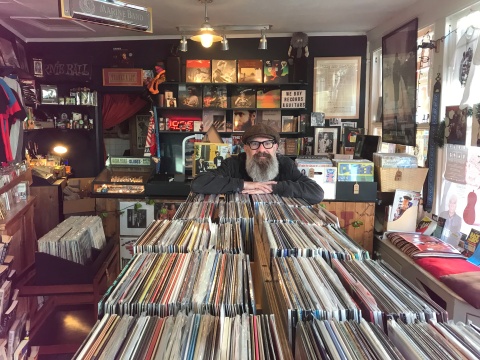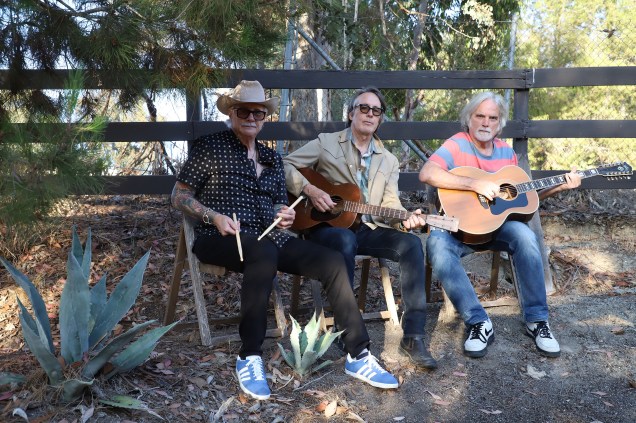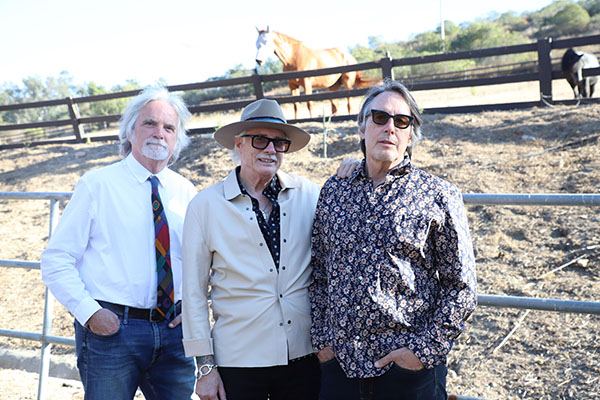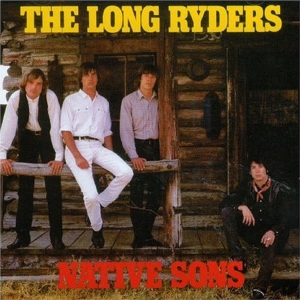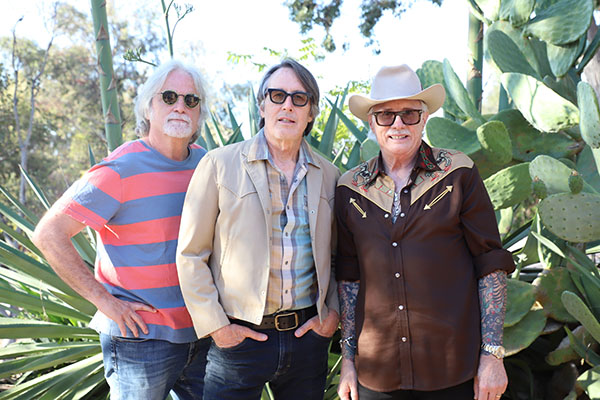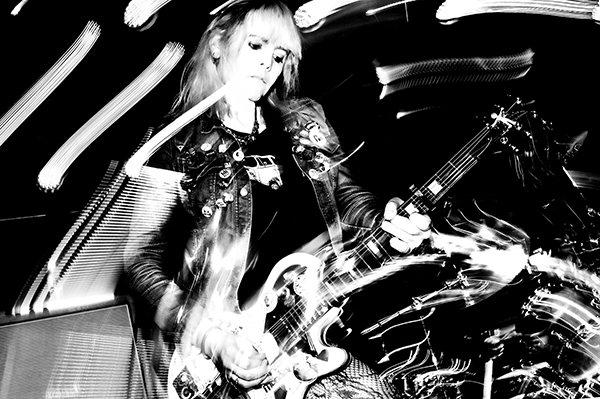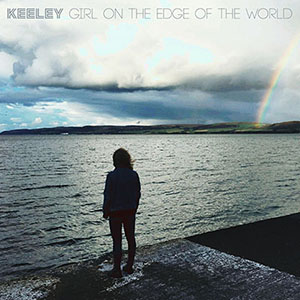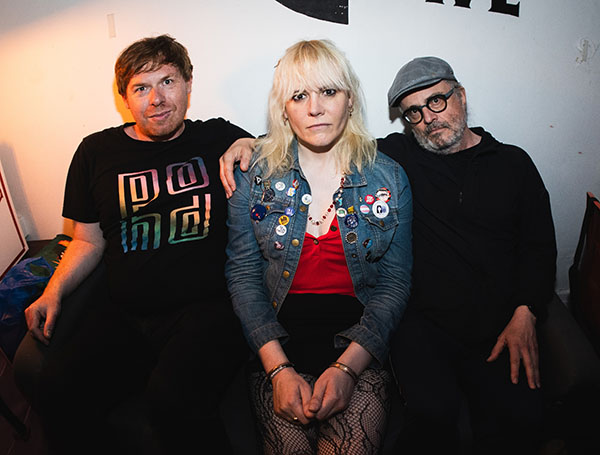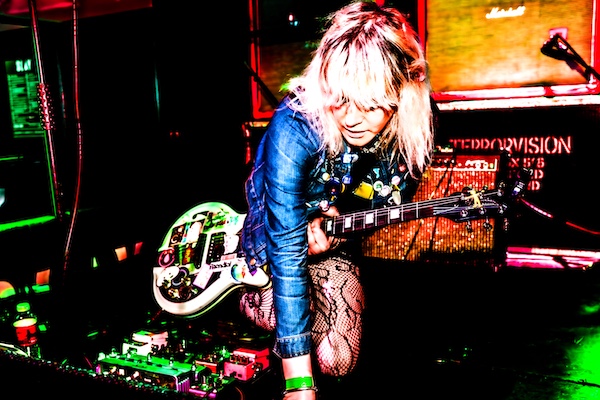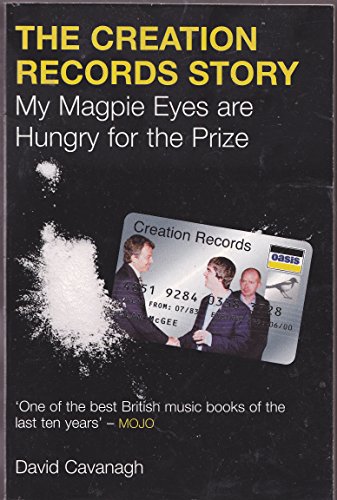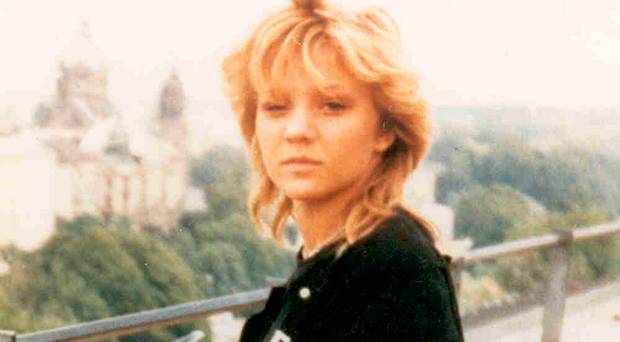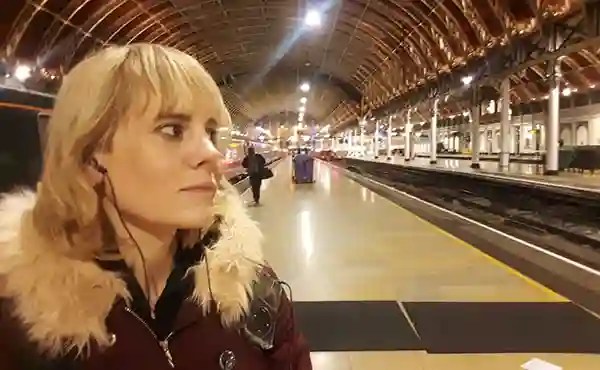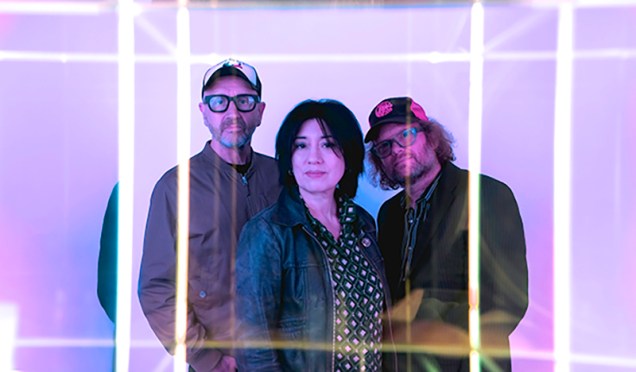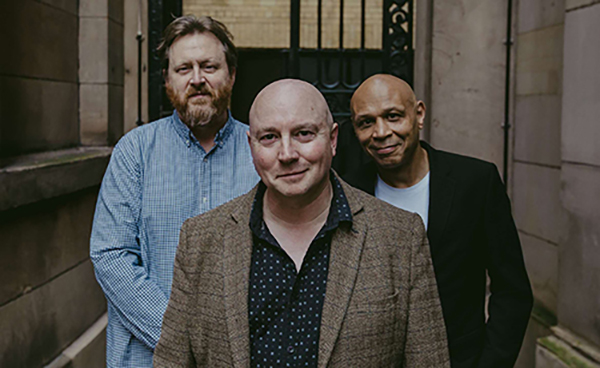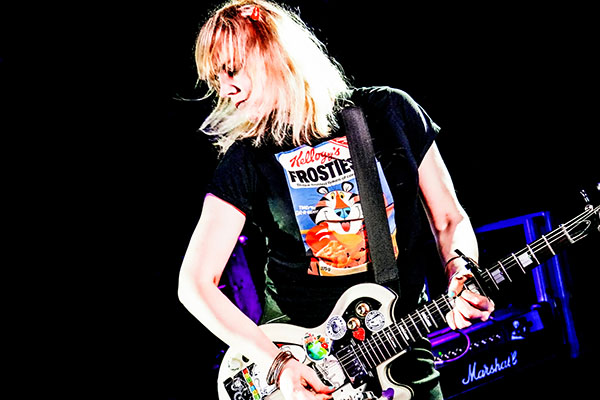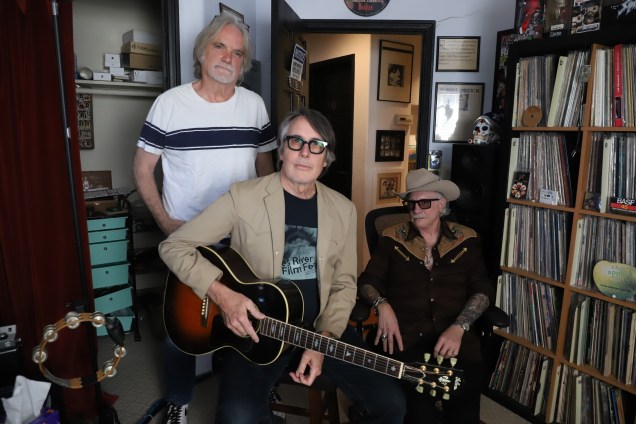
Pioneering US band The Long Ryders unknowingly kick-started what become the Americana / alt-country movement when they formed in LA in the early ‘80s.
Part of the Paisley Underground scene – they were contemporaries of R.E.M. – the band split up in 1987, but reformed several times in the Noughties, and, in 2019, released their first album in 32 years – Psychedelic Country Soul.
The follow up, September November, came out in 2023, and included protest rock ‘n’ roll, cowboy country, folk-rock, and psych.
‘High Noon Hymns sees The Long Ryders back in the saddle, with all guns blazing’
Now they’re back with a brand-new record, High Noon Hymns, and, like its predecessor, it was produced by Ed Stasium (The Ramones, Living Colour, Soul Asylum) and made at Kozy Tone Studios in Poway, California – Stasium’s home studio.
With barnstorming, guitar-fuelled, Trump-baiting political anthems like Four Winters Away and Stand A Little Further In The Fire, as well as melodic country rock (World Without Fear and Ramona) and reflective and nostalgic Paisley Underground jangling (Say Goodbye To Crying), High Noon Hymns sees The Long Ryders back in the saddle, with all guns blazing, and feels very much like a companion piece to September November.
Guests on High Noon Hymns include D.J. Bonebrake – from L.A. punk band X – on vibes – and bluegrass prodigy, Wyatt Ellis, on mandolin.
Say It With Garage Flowers spoke to frontman, Sid Griffin, about making the new album, the legacy of The Long Ryders, working with Gene Clark in the ’80s and trying to stay positive in a dark world.
Q&A
The last time we spoke was in 2023, ahead of the release of September November. You told me then that you had five songs left over from the sessions for that record, so did any of those tracks end up on High Noon Hymns?
Sid Griffin: Good memory – four of them did.
Like its predecessor, the new record was produced by Ed Stasium, and recorded at his Kozy Tone Studios in Poway, California. When did you make the new album?
We met and recorded at Ed’s house in July 2025.
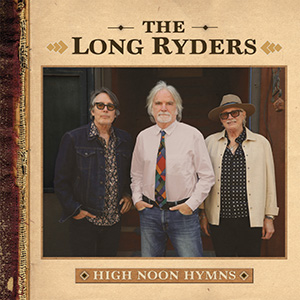 What’s your relationship with Ed like? What does he bring to the party?
What’s your relationship with Ed like? What does he bring to the party?
Well, his musical taste is so much the same [as ours]. You don’t have to explain this or that to Ed. If you get a guy that doesn’t match up, it just doesn’t work sometimes… Stephen Hague was a hot producer in the early ‘80s, and he was assigned to do the first R.E.M. sessions for IRS. It had synthesizers on it… those tracks have never come out, and the R.E.M. guys said, ‘Nope – they weren’t us…’
Nothing against Hague – he just popped into my head, and he was a talented guy who had hits – but the point is, it was a mismatch – it was the wrong call and it didn’t make any sense. You need someone that speaks your language, and Ed speaks it – in the way that Hague didn’t speak the language of R.E.M.
With Ed, I can make a reference to some old Brill Building girl group classic and, as he’s slightly older than me and a New Yorker, he will know the song. Or I can say something about George Harrison or Neil Finn and he will know what I mean. He’s heard All Things Must Pass, or whatever the hell it is. That’s what you need.
Did you know what kind of album you wanted to make this time around?
It’s a classic Long Ryders thing to have these meetings when we say: ‘Let’s make an album like an electric folk-rock Rubber Soul – that’s the scene and that’s what we’re going to do…’ and then when we get in the studio, we just forget about it. So, the answer is ‘Yes – we decide on a theme and then we ignore it.’ Why? It’s just what happens…
I think High Noon Hymns feels like a companion piece to September November…
I agree. Psychedelic Country Soul was our comeback album – we hadn’t made a record in 25 years or whatever, and we made it in Dr. Dre’s studio, which was great – Val Garay owned it, before he sold it to Dr. Dre. It’s the studio where Kim Carnes recorded Bette Davis Eyes.
‘We say, ‘Let’s make an album like an electric folk-rock Rubber Soul,’ then when we get in the studio, we just forget about it’
Our next two albums, September November and the new one, were both recorded in the style of The Basement Tapes, in Ed Stasium’s house. He has a sizeable house in the Greater San Diego area – we moved the sofa to the wall, put the furniture in one or two rooms and just set up on his rugs, with his record collection and his books on the wall around us. It’s an equally good way of recording. In some ways it’s not as good as recording at Dr Dre’s studio in Los Angeles, and in some ways it’s better.
One of the guests on the new album is D.J. Bonebrake, drummer from LA punk band X, who plays vibes. He was also on September November…
Yeah, and he’s also on my solo album, The Journey From Grape To Raisin – there’s a plug for you… D.J. is a brilliant drummer and a fantastic human being – he’s a sweetheart of a guy and very modest – and he plays virtuoso vibes. He could sit in with a modern jazz quartet.
And bluegrass prodigy, Wyatt Ellis, plays mandolin on the new record too…
Yeah. Our drummer, Greg Sowders, is a publishing mogul by day at Warner Chappell Music, in Los Angeles, California. Greg signed Wyatt Ellis to a deal as a songwriter, putting him together with a bunch of guys like Bernie Leadon of The Eagles. So, I said, ‘Look – I’m playing mandolin on this record, but why don’t we have Wyatt Ellis playing on a track?’
He’s young and aggressive, and I’m sure one day we won’t be able to get him – he’ll be a big star. We’re lucky to get him – he’s only 17 or 18, and in a few years, just forget it. He’s going to be like a male Emmylou Harris or Lucinda Williams – he’s going to be huge.
Murry Hammond plays bass on the new album, and so does your guitarist, Stephen McCarthy…
Yeah – Stephen plays a little bass. They wanted me to play the bass, and I said, ‘That’s a mistake – you’ve got two good bass players, why would you want the third best bass player in the room to play?’
The last time we spoke, we talked about your former bass player, Tom Stevens, who died in 2021. You told me that for a while you didn’t know whether The Long Ryders would carry on after his death. How does it feel now five years have passed, and having made two more albums. Are you in a good place and are you glad you carried on?
Yeah, but I don’t think we’re going to be doing this forever. I gotta tell you, we’re getting long in the tooth, and people have responsibilities, with families, and Greg’s career takes up a lot of his time.
We can only rehearse X number of weeks a year… but I think it was wise to crack on. It’s certainly built a legacy up. There’s this guy on X [formerly Twitter] who has a huge following and reports on indie music – I can’t remember his name, but he was saying that of all the ‘80s and ‘90s bands that have got back together, the only one that’s risen to the same standard, or even surpassed the standard of their heyday, is The Long Ryders. That’s great.
There is no one else on that list that’s making records as good or better than they did in their youth, when they got the most media attention. I think we’ve made another good album, but whether we’ll make a fourth, a fifth and a six, I couldn’t say.
I saw you play in London, at 229, in 2024, and you were on fire…
About a year ago, I was walking down the street in my neighbourhood [North London] and these two guys recognised me. We were chatting and they said, ‘Long Ryders at 229 – best gig of the year…’
They were obviously in the record industry – it was the vocabulary and nomenclature that they used. So, I asked them what they did and one of them said he was one of Noel Gallagher’s PAs. I laughed and said: ‘He’s got more than one?’ And the other guy said he was Noel’s guitar tech. I said: ‘What are you guys doing in my neighbourhood?’ They said: ‘Well, Oasis have accepted a reunion tour offer, so they’re rehearsing at Noel’s studio.’
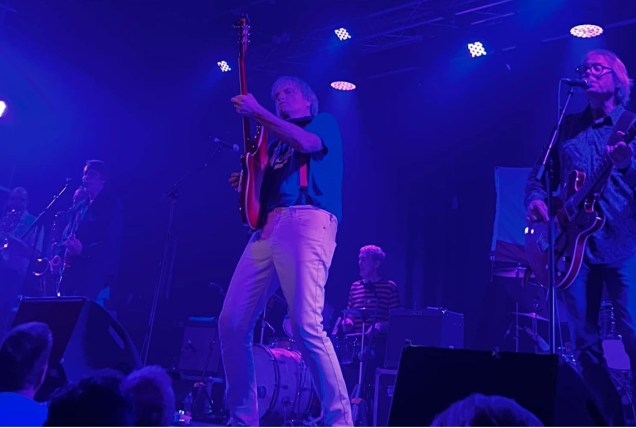
You can walk to it from my house. So, I said, ‘That’s amazing,’ and I told them that Noel Gallagher had said to Steve Lamacq twice that he liked [the Long Ryders song] Looking For Lewis and Clark. They said. ‘We’re gonna tell him that we just saw you.’ And I said, ‘Wow – that’s very flattering.’
Let’s talk about some of the songs on the new record. Four Winters Away was the first single and it’s also the first track on the album. It’s classic Long Ryders – a barnstorming, politically-charged anthem, and the title is a reference to Trump’s term in office…
Absolutely. It was written for the first album, but we screwed up the recording of it. The first time Stephen and Greg recorded the backing track I wasn’t in the studio and I had to tell them it wasn’t good. So, we dumped it and I thought, ‘well, that’s sad…’ As Biden had won the next battle, I thought it was the end of Donald Trump, but, as loathsome as he is, he’s probably made the greatest political comeback in American history.
So, in summer 2025, I said, ‘I want to revisit Four Winters Away, as it means a lot to me.’ So, the guys said ‘yeah’, and this time I was in the studio with them, and we got it. I’m pleased to say, I think we were one of the first proper anti-Trump things out there. We’d have been the first if we’d done it the first time. Now Springsteen’s joined in and Billy Bragg. We’re part of the parcel and I’m glad we’ve been swept up in it.
By coming out now, in light of what’s happened in Minneapolis, it feels even more relevant…
Yeah. I knew it was going to come out, and then Renée Good got killed, and then Alex Pretti, and I was thinking, ‘God, this is timely…’
‘I thought it was the end of Donald Trump, but, as loathsome as he is, he’s probably made the greatest political comeback in American history’
How does what’s happening now make you feel when you have to go to America?
I don’t know that I’ll be going back anytime soon, but I want to play there. The last time I was there was about a year ago, when I played with Peter Case. We did a month-long tour in March of 2025, and when I was leaving to fly back to London, I was chatting to the customs guy, who was very friendly – he was a Yank – and he said: ‘Have you got any anti-Trump stuff on your phone?’
I looked at him and said: ‘What did you say? I thought you were supposed to ask guys that when they’re entering – not leaving.’ He nervously laughed, looked around and said: ‘I don’t care…’, but then he shrugged his shoulders and said: ‘When you come back, here’s a word to the wise…’ How scary is that?
World Without Fear, which was written by Stephen McCarthy, is also themed around hope. In the lyric, it says: ‘I dream of a world without fear…’ It feels like it carries on thematically from Four Winters Away…
It is part of a theme… I hadn’t really thought about it and made that connection, but you’re right… That was a real fun one to record – that little Brian Wilson bit in the middle… That one’s in the set list – we’re going to be playing it live.
Stand A Little Further In The Fire, which was written by you, is great – another moody, piledriving rock song which mentions Trump, who you call ‘the liar-in-chief…’
Well spotted. The title came from a friend at the gym – there were about eight of us walking somewhere… One of our friends got involved with hard drugs, and somebody said something about him getting clean: ‘No – foolishly, he’s decided to stand a little further in the fire…’ I thought it was a great phrase.
The song Ramona is lighter in tone musically, with a country-rock feel…
Yeah – it’s sort of second album Flying Burrito Brothers. That’s one of our touchstones.
(How How How) How Do You Want To Be Loved? is another lighter moment on the album…
Yeah… I’m one of the few people that didn’t like the Get Back film by The Beatles – I thought it was tedious and so long. You get to see that their rehearsals were as boring as anybody else’s. But I was amazed by the part where McCartney picks up the bass and writes Get Back. So, I thought, ‘I’ll do that…’ and that’s How How How (How) Do You Want To Be Loved?
My wife was pottering around in the background [at home], and I thought: [sings]: ‘How, how, how, how do you want to be loved?’ As pompous and presumptuous as it sounds, that was my attempt to be Paul McCartney. I thought if he could write a song out of thin air, maybe I could.
‘I’m one of the few people that didn’t like the Get Back film by The Beatles – I thought it was tedious and so long’
As the title suggests, A Hymn for the City of Angels, is a song about LA, where you moved to from Kentucky in the ‘70s, to make it as a musician…
Yeah – I got there in October 1977. I told everybody in Kentucky I was going to do it. I said, ‘I’m getting out…’
Very few people, including my parents and a lot of my close friends, thought I was going to do it. People just didn’t do that kind of thing. My parents made me go to university – they said, ‘You go to university, get an undergraduate degree, and it’s your life…’
I graduated on June 1, and spent the summer just goofing around, as young people do, wasting time. And I went to LA – I took 10 or 11 days to drive across the country. It was like a three-day drive, but, on the way, I visited friends in Denver and Texas – I just had the best time all by myself, and when I got to LA, it was just incredible.
I’m trying to write a reminiscence – a kind of autobiography of those early days. I’ve finished two passes, and I’ve got a guy interested in it, but I’ve got to sit down and finish it.
They were very happy times, and I did go to LA, to ‘make it’, as people do. I once had a great conversation with Gina Schock, the drummer from The Go-Go’s, because she drove out from Maryland, and did the same. Obviously she did a lot better than I did, as The Go-Go’s were quite successful commercially.
She loaded up her drums in a car, threw some clothes and her favourite records in there and drove to LA. So, good for her. People go to LA to make it – it’s such a great storybook kind of thing. That’s my kind of cliché – I really did that, and it was life-changing. And, as Dylan wrote in Chronicles, people left Minnesota to go to New York City, and they never came back. I thought that’s me. I love Kentucky very much, but I’m never going back. I’ll never live there again.
Wanted Man In Arkansas from the new record is one of Stephen’s songs…
Yeah – it’s a traditional country thing…
There’s a guy on the run from the law, who robs a liquor store, and shoots the proprietor…
You gotta have one of those [songs]. People like Dave Alvin come up with that kind of material – really solid stuff that’s total Americana.
Let’s talk about your song, A Belief In Birds…
That was recorded for September November, but we just didn’t have time to finish it. During the sessions for the new album, I said to Ed: ‘I really liked A Belief In Birds…’ He looked at me and said, ‘So did I. How come it wasn’t on the last record?’ And I said, ‘Well, we didn’t quite finish it…’
He went: ‘I’ve got it here.’ So, he got it up, and he and I listened to it while the other guys were eating or doing whatever they were doing. And he said: ‘What do you want to do?’ And I said, ‘Well, I’d like to do this and that, and finish it…’
So, without checking with the other guys, we started working on it. And then Stephen came in and said, ‘That sounds great,’, and we finished it off, which I’m very pleased about, because it’s just terrific.
In the song, you say how you’re jealous of birds being able to soar and swoop and glide away. Are you a fan of our feathered friends?
Yeah – my friend, Dave Crouch, at Rhino Records, is an ornithologist, and he got me into it. Birds are so free and they’re so incredible… I was reading in a newspaper that there’s some bird that they claim can fly for several hours without having to land and rest. That is just incredible to me. When I think about it, it’s a metaphor for independence and freedom. I thought it was a good idea to write a song about it.
So, you’re influenced by birds and The Byrds…
Yeah, but that song is about our feathered friends, as opposed to McGuinn and company.
Talking of The Byrds, you worked with Gene Clark on The Long Ryders’ 1984 debut album, Native Sons – he sang backing vocals on Ivory Tower. How was that?
He was great, but, because he’s got a cult following now, it’s hard for Europeans to understand that when we called him up to sing on the record, he was so unpopular – he couldn’t get arrested. He did it for $75 – he didn’t know who we were and he didn’t really care. I know it was $75 because it was my money.
Gene once did an in-store at Aron’s Records on Melrose – the hip retail street in West Hollywood – and one guy showed up. The guy was a friend of mine… I couldn’t go and my friend went and he said no one was there.
Here’s some trivia for you – [David] Crosby was going to sing on September November. He kept saying, ‘I’ll do an overdub’, but we didn’t do it, and then he died.
That’s such a shame. There are more birds mentioned on the song Rain In Your Eyes from the new album – the lyric refers to a sparrow and a songbird…
Yeah… I had a friend who suffered from a depressive episode, and one of the things the doctor told him was to get out of the house in the morning, go for a walk and listen to birds. Even in an urban area at 6am or 7am, the dawn patrol is chirping, and studies have shown it lifts the human spirit and fights depression. I pass that along to your readers.
Say Goodbye To Crying is one of my favourite songs on the record – it’s a reflective ballad and it has a jangly, Paisley Underground feel…
It does – I hadn’t really thought about it, but it’s nice that you got that – the song can be kind of a homage to the Paisley Underground days. They were very happy days – everyone was so supportive, and people lived near each other in the West Hollywood area.
‘We try not to be a negative band and to set a positive example, as life is grim enough without more darkness’
It’s also a song about trying to stay positive – the album is a pretty hopeful record…
It is. We try not to be a negative band and to set a positive example, as life is grim enough without more darkness, but whatever our definition of positivity is might not be everybody else’s… I find it hard to read the newspaper these days – the news is so bad… It’s the rise of horrible people doing horrible things.
The album ends with your version of Dylan’s Forever Young. Why did you decide to close the record with a cover?
It was our drummer Greg Sowders’s idea – when you see him, you can ask him why. I think it’s a good idea and it’s a good song. We had Wyatt Ellis, the young bluegrass prodigy, play on it. In 10 years, people will be talking about him like they talk about Steve Earle, I promise.
Forever Young, which Dylan wrote for his son, Jesse, is another hopeful song, so High Noon Hymns starts and ends with songs of hope…
That’s a very good point. I’m hoping that we have a reaction to all the bad things in the world, and that we end up with some good days, because right now, wow…
Where did the album title come from?
Stephen McCarthy thought of it – we’re getting on and there’s the whole Western thing, and the high noon of our career. This is sort of it – if we keep recording, sooner or later there’s going to be a downhill slide to it. I’ve hit 70 and I did my first paying gig at 15… You do the math. It was in Kentucky and we got $100, which was huge at that time.
It was more than Gene Clark got paid for singing on Ivory Tower…
Yeah…
High Noon Hymns is released on March 13 – CD and double vinyl – via Cherry Red Records.
